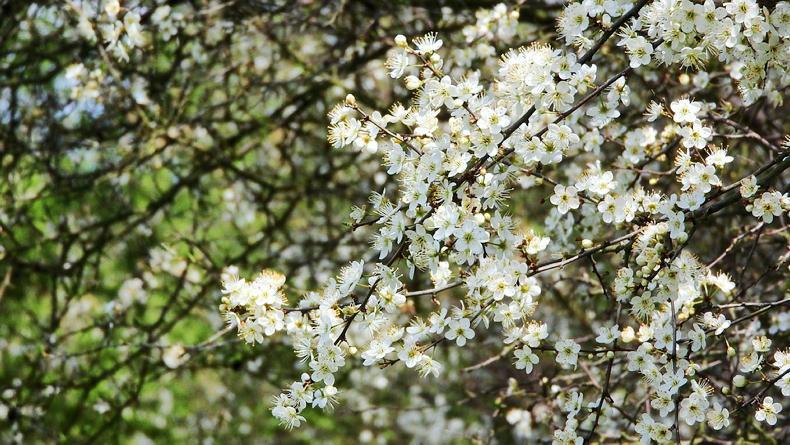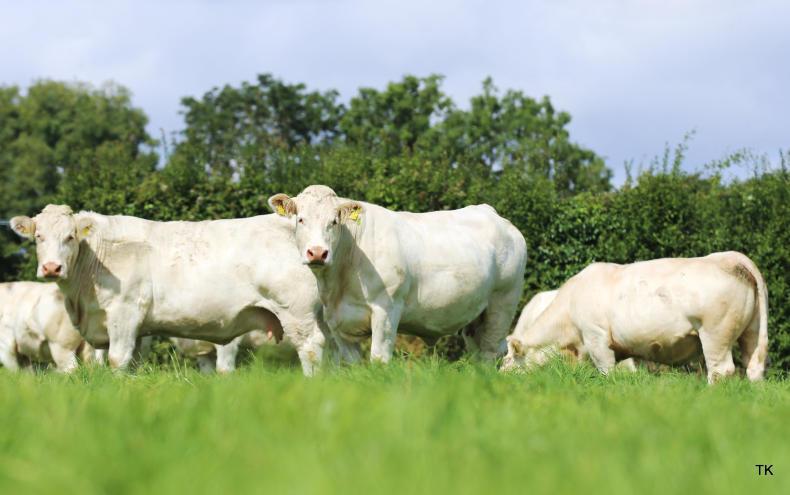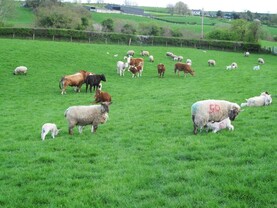Increased transparency in the beef sector, a review of farm assist supports, a biodiversity survey of every farm in Ireland, a review of pesticide use by farmers, a national soils strategy and a drive to expand organic farming are just some of the proposals included in the programme for government document agreed by Fianna Fáil, Fine Gael and the Green Party.
The Irish Farmers Journal has obtained a draft copy of the programme for government document hammered out by the three parties over recent weeks. On agriculture, the document references everything from animal welfare and land use to nutrient management and biodiversity.
Beef
On beef, Fianna Fáil, Fine Gael and the Green Party say they will build upon existing beef supports schemes such as BDGP and BEEP to enhance farm incomes, while contributing to climate change, biodiversity and animal welfare goals.
The parties say they will ensure greater transparency, cooperation and fairness in the beef industry throughout the supply chain – from farm to fork.
They also say they will ensure that the challenges that beef farmers have been dealing with are recognised and supported under the next CAP.
The document also acknowledges “the important and unique role that the suckler sector plays in the beef industry and commit to developing supports that recognise this critical role”.
Live exports
Farmers will be relieved to see that live exports have been protected in the programme for government document, with outgoing Minister for Agriculture Michael Creed making it a priority during the negotiations.
If anything, the role of live exports has been enhanced in the agreed document.
“We acknowledge the income pressure that beef farmers are under, and the role live exports play in price competition. Recognising the importance of animal welfare, the new Government will provide additional resources to monitor welfare standards by increasing the veterinary presence available on all live export consignments to third countries. We will vigorously pursue value-enhancing alternative market avenues,” the document states.

The livestock carrier Sarah M moored in the mouth of Waterford Estuary between Dunmore East and Hook Lighthouse. / Donal O'Leary
Environment and biodiversity
Unsurprisingly, the programme for government agreed by the three parties is ambitious when it comes to the environment and biodiversity. The parties propose to carry out a biodiversity survey on every farm in Ireland.
They also propose to complete a national survey of the 630,000km of hedgerows in Ireland and will also develop an ‘Energy Efficient Farming’ scheme to include a farm efficiency rating and grant subsidies for onsite renewable energy on farms.
The programme for government also states that a review will be conducted on pesticide use in Irish farming, whilst acknowledging the comparatively low level of pesticide use in Ireland.
The document says the government will provide supports to farmers who are able to reduce their dependence on agri-chemicals.
There is also a commitment to publish a National Soils Strategy that will assess current soil health in Ireland to inform future policies on good soil management practices.
Linked to this, there are also plans to introduce a national liming programme to improve nitrogen use efficiency in soils.

Nitrates
Fianna Fáil, Fine Gael and the Greens have agreed to carry out a review of the effects of the nitrates derogation on water quality in conjunction with the EPA, which will inform future policy in this area.
The document says the next Government will work with nitrates derogation farmers to improve environmental outcomes on their farms, ensuring the sustainable use of the derogation in line with our environmental objective.
There is a commitment to expand programmes such as the Agricultural Sustainability Support and Advisory Programme (ASSAP) to deliver real improvements in water quality.
The use of protected urea on grassland and greater take up of low emissions slurry spreading will also be encouraged.
REPS mark II
As previously announced, the next Government will introduce a new flagship environmental scheme that, during the talks, was referred to as "REPS mark II".
“We will design a flagship environmental scheme under the new CAP which is user friendly for farmers, delivering broader environmental and biodiversity benefits and aligning financial support with climate, forestry and land use objectives.
"This will be complemented by an ambitious ECO-scheme under Pillar 1 of the CAP, rewarding farmers who deliver enhanced environmental performance,” the document states.
“The conclusion of the current CAP programme period at the end of 2020 provides a significant opportunity to reorient agri-environment and land use policy to deliver more in the short term on the key priorities of climate, biodiversity, designated land, water quality and carbon reduction and removal.
"We will pilot this agri-environment scheme during the transition period, supported by additional Exchequer funding. The scheme will seek to include farmers not currently in GLAS who previously participated in AEOS, and those exiting GLAS. This pilot will inform the shape of the flagship agri-environment scheme for the next CAP,” it adds.
Dairy
The programme for government document states it will consider taxation changes for dairy farmers that will allow them reduce their tax bill in a year of high profits to be used again during periods of weak dairy markets.
The three parties also state that will work with farmers to improve the viability of dairy calf-to-beef systems, as well as support dairy farmers that wish to add-value to their own milk through on-farm processing.
Interestingly, the parties say they will also research the potential of dual-purpose breeds in the dairy herd, as well as the viability of ‘calf-at-foot’ dairy models.

Tillage
The programme for government document agreed by Fianna Fáil, Fine Gael and the Green Party states the next Government will aim to maximise the potential opportunities in the organic tillage sector as well as opportunities for homegrown proteins in animal feeds.
The document also says the next Government will investigate that potential for growing fibre crops such as hemp to see whether these crops have a viable market.
Land use
The programme for government document agreed by Fianna Fáil, Fine Gael and the Green Party also contains a number of important policy proposals for future land use in Ireland.
One of the standout promises is to incentivise the rewetting of carbon rich soils. This could see farmers with peat soils paid to rewet some of their land in order to store carbon in our soils.
The document is also very ambitious around forestry. It says it will provide increased support for the development of agroforestry or silvopasture on Irish farms.
It also states that it will incorporate afforestation into the new CAP to provide incentives for farmers to plant woodland on their farm, which will act as a carbon store, promote wildlife corridors and provide a future fuel source for farm households.
There is a commitment to also support farm forestry/rewilding options that do not impact on agricultural production and will also support biodiversity and habitat creation.
The document states the parties will incentive small scale forestry planting or rewilding on areas up to 1ha.
Badger culling
Fianna Fáil, Fine Gael and the Green Party have also agreed to end badger culling as soon possible. In the programme for government document, the three parties say they will extend the badger vaccination programme nationwide and end badger culling as soon as possible, consistent with the best scientific and veterinary advice.
Farm Assist and forgotten farmers
The next Government will also conduct a review of the means test disregards for Farm Assist supports. The review will aim to better reward farmers availing of the Farm Assist scheme.
The document acknowledges that measures such as Farm Assist and the Rural Social Scheme are important supports for low income farmers.
The programme for government document also states that the next Government will seek to resolve issue of support for the category of farmers known as "forgotten farmers" under the next CAP.
Increased transparency in the beef sector, a review of farm assist supports, a biodiversity survey of every farm in Ireland, a review of pesticide use by farmers, a national soils strategy and a drive to expand organic farming are just some of the proposals included in the programme for government document agreed by Fianna Fáil, Fine Gael and the Green Party.
The Irish Farmers Journal has obtained a draft copy of the programme for government document hammered out by the three parties over recent weeks. On agriculture, the document references everything from animal welfare and land use to nutrient management and biodiversity.
Beef
On beef, Fianna Fáil, Fine Gael and the Green Party say they will build upon existing beef supports schemes such as BDGP and BEEP to enhance farm incomes, while contributing to climate change, biodiversity and animal welfare goals.
The parties say they will ensure greater transparency, cooperation and fairness in the beef industry throughout the supply chain – from farm to fork.
They also say they will ensure that the challenges that beef farmers have been dealing with are recognised and supported under the next CAP.
The document also acknowledges “the important and unique role that the suckler sector plays in the beef industry and commit to developing supports that recognise this critical role”.
Live exports
Farmers will be relieved to see that live exports have been protected in the programme for government document, with outgoing Minister for Agriculture Michael Creed making it a priority during the negotiations.
If anything, the role of live exports has been enhanced in the agreed document.
“We acknowledge the income pressure that beef farmers are under, and the role live exports play in price competition. Recognising the importance of animal welfare, the new Government will provide additional resources to monitor welfare standards by increasing the veterinary presence available on all live export consignments to third countries. We will vigorously pursue value-enhancing alternative market avenues,” the document states.

The livestock carrier Sarah M moored in the mouth of Waterford Estuary between Dunmore East and Hook Lighthouse. / Donal O'Leary
Environment and biodiversity
Unsurprisingly, the programme for government agreed by the three parties is ambitious when it comes to the environment and biodiversity. The parties propose to carry out a biodiversity survey on every farm in Ireland.
They also propose to complete a national survey of the 630,000km of hedgerows in Ireland and will also develop an ‘Energy Efficient Farming’ scheme to include a farm efficiency rating and grant subsidies for onsite renewable energy on farms.
The programme for government also states that a review will be conducted on pesticide use in Irish farming, whilst acknowledging the comparatively low level of pesticide use in Ireland.
The document says the government will provide supports to farmers who are able to reduce their dependence on agri-chemicals.
There is also a commitment to publish a National Soils Strategy that will assess current soil health in Ireland to inform future policies on good soil management practices.
Linked to this, there are also plans to introduce a national liming programme to improve nitrogen use efficiency in soils.

Nitrates
Fianna Fáil, Fine Gael and the Greens have agreed to carry out a review of the effects of the nitrates derogation on water quality in conjunction with the EPA, which will inform future policy in this area.
The document says the next Government will work with nitrates derogation farmers to improve environmental outcomes on their farms, ensuring the sustainable use of the derogation in line with our environmental objective.
There is a commitment to expand programmes such as the Agricultural Sustainability Support and Advisory Programme (ASSAP) to deliver real improvements in water quality.
The use of protected urea on grassland and greater take up of low emissions slurry spreading will also be encouraged.
REPS mark II
As previously announced, the next Government will introduce a new flagship environmental scheme that, during the talks, was referred to as "REPS mark II".
“We will design a flagship environmental scheme under the new CAP which is user friendly for farmers, delivering broader environmental and biodiversity benefits and aligning financial support with climate, forestry and land use objectives.
"This will be complemented by an ambitious ECO-scheme under Pillar 1 of the CAP, rewarding farmers who deliver enhanced environmental performance,” the document states.
“The conclusion of the current CAP programme period at the end of 2020 provides a significant opportunity to reorient agri-environment and land use policy to deliver more in the short term on the key priorities of climate, biodiversity, designated land, water quality and carbon reduction and removal.
"We will pilot this agri-environment scheme during the transition period, supported by additional Exchequer funding. The scheme will seek to include farmers not currently in GLAS who previously participated in AEOS, and those exiting GLAS. This pilot will inform the shape of the flagship agri-environment scheme for the next CAP,” it adds.
Dairy
The programme for government document states it will consider taxation changes for dairy farmers that will allow them reduce their tax bill in a year of high profits to be used again during periods of weak dairy markets.
The three parties also state that will work with farmers to improve the viability of dairy calf-to-beef systems, as well as support dairy farmers that wish to add-value to their own milk through on-farm processing.
Interestingly, the parties say they will also research the potential of dual-purpose breeds in the dairy herd, as well as the viability of ‘calf-at-foot’ dairy models.

Tillage
The programme for government document agreed by Fianna Fáil, Fine Gael and the Green Party states the next Government will aim to maximise the potential opportunities in the organic tillage sector as well as opportunities for homegrown proteins in animal feeds.
The document also says the next Government will investigate that potential for growing fibre crops such as hemp to see whether these crops have a viable market.
Land use
The programme for government document agreed by Fianna Fáil, Fine Gael and the Green Party also contains a number of important policy proposals for future land use in Ireland.
One of the standout promises is to incentivise the rewetting of carbon rich soils. This could see farmers with peat soils paid to rewet some of their land in order to store carbon in our soils.
The document is also very ambitious around forestry. It says it will provide increased support for the development of agroforestry or silvopasture on Irish farms.
It also states that it will incorporate afforestation into the new CAP to provide incentives for farmers to plant woodland on their farm, which will act as a carbon store, promote wildlife corridors and provide a future fuel source for farm households.
There is a commitment to also support farm forestry/rewilding options that do not impact on agricultural production and will also support biodiversity and habitat creation.
The document states the parties will incentive small scale forestry planting or rewilding on areas up to 1ha.
Badger culling
Fianna Fáil, Fine Gael and the Green Party have also agreed to end badger culling as soon possible. In the programme for government document, the three parties say they will extend the badger vaccination programme nationwide and end badger culling as soon as possible, consistent with the best scientific and veterinary advice.
Farm Assist and forgotten farmers
The next Government will also conduct a review of the means test disregards for Farm Assist supports. The review will aim to better reward farmers availing of the Farm Assist scheme.
The document acknowledges that measures such as Farm Assist and the Rural Social Scheme are important supports for low income farmers.
The programme for government document also states that the next Government will seek to resolve issue of support for the category of farmers known as "forgotten farmers" under the next CAP.









 This is a subscriber-only article
This is a subscriber-only article









SHARING OPTIONS: